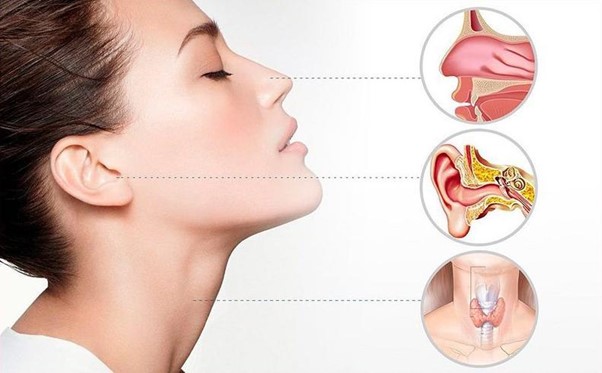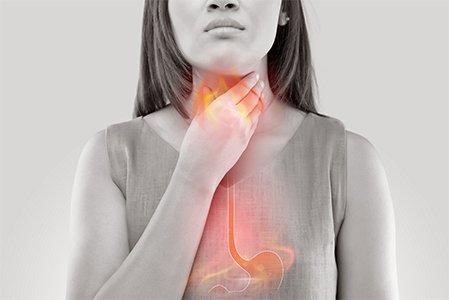Common Ear, Nose, and Throat Disorders in Singapore

Common Ear, Nose, and Throat Disorders in Singapore
Ear, nose, and throat (ENT) disorders are a very common type of illness affecting tens of millions of people every year.
They can range from minor annoyances such as sinus congestion or earache to more serious conditions such as hearing loss or throat cancer.
Therefore, it is important to know the signs and symptoms of these disorders so that you can seek medical attention if necessary.
In this article, we will discuss common ENT disorders, their causes, treatments, and how to prevent them as best as possible.
Symptoms of ENT Disorders
When it comes to ear, nose, and throat disorders, each condition has its own unique set of symptoms. Here are some common signs and symptoms associated with ENT disorders:
Ear Pain
Ear pain is a common symptom of ear infections or other ear-related issues. The pain can be sharp, throbbing, or dull, and may be accompanied by other symptoms like fever or a feeling of fullness in the ear.
If you are experiencing any kind of ear pain, you should see a doctor as soon as possible to identify the underlying problem and begin treatment.
Difficulty Breathing
Difficulty breathing is a common symptom of nose and throat problems. It can be an indication of a variety of conditions, including allergies, sinusitis, or asthma.
If you are struggling to breathe, it’s important to see a doctor immediately to determine the cause of the problem and find appropriate treatment.
Sore Throat
A persistent sore throat is more than just an inconvenient symptom; it could indicate a variety of illnesses, from the common cold to something more serious like strep or tonsillitis.
To ensure you get proper treatment for your condition and avoid potential complications, see a doctor if your sore throat persists beyond several days – particularly if you experience additional symptoms such as fever, coughs, or difficulty swallowing.
Headaches
Headaches are a common symptom of both ear and nose issues. The pain can be severe and may be accompanied by other symptoms like ear pain or ringing in the ears.

If you are experiencing frequent headaches, it may be a sign of an underlying ear or nose problem, and you should see a doctor to determine the cause.
Dizziness
Dizziness is a common symptom of ear problems like labyrinthitis, which is an inflammation of the inner ear. It can also be a symptom of other conditions like low blood pressure or dehydration.
If you’re experiencing dizziness, it’s important to see a doctor to determine the cause and find appropriate treatment.
Causes of Ear, Nose, and Throat Disorders
The causes of ENT disorders can vary greatly from person to person. Some common causes include:
Allergies
People who suffer from seasonal allergies are particularly vulnerable to ear, nose, and throat problems.
Allergic reactions to irritants like pollen or pet dander cause inflammation and swelling in the mucus linings of the nose and throat, which can lead to sinusitis and other infections.
In some cases, allergies can also cause the Eustachian tubes in our ears to become blocked, leading to hearing difficulties and pain.
Smoking
Smoking is a major contributor to several ear, nose, and throat problems. The act of smoking can irritate and inflame the lining of the throat and nose, leading to chronic sinusitis, coughing, and voice disorders.
Smoking has also been directly linked to cancers of the throat and larynx.
Reflux Disease
Gastroesophageal reflux disease (GERD) occurs when stomach acid flows backward into the esophagus and throat. If it happens repeatedly, it can cause damage to the structures of your ear, nose, and throat. Chronic reflux disease can cause inflammation, chronic coughing, and hoarseness.

Environmental Factors
Exposure to a range of environmental factors like air pollution, loud noises, and certain toxic substances can also be responsible for ear, nose, and throat disorders.
Overexposure to loud noises can be particularly harmful to hearing and can lead to tinnitus, an annoying ringing in the ears.
Stress
Though not directly related to your ears, nose, and throat, stress can have an impact on your physical health.
Stress causes your body to release hormones that can lead to weakened immunity, which can make you more prone to infection, including those of the ear, nose, and throat.
Treatments for Common Ear, Nose, and Throat Disorders in Singapore
Treatment of ENT disorders depends on the type and severity of the condition.
Depending on the cause, treatment may involve medications such as antibiotics or anti-inflammatory drugs to reduce pain and inflammation, or in more severe cases, surgery to remove tumors or address other anatomical issues.
Prevention Tips for Avoiding ENT Problems
The best way to prevent ear, nose, and throat problems is through proper hygiene and preventive measures. This includes:
Avoid smoking and exposure to second-hand smoke
The harmful chemicals in cigarette smoke can cause damage to your respiratory system, causing problems such as throat irritation, cough, and wheezing.
Therefore, to avoid such problems, it’s best to avoid smoking altogether. Even exposure to second-hand smoke can cause problems, so make sure to stay away from smokers and smoking areas.
Practice good hygiene
Personal hygiene is essential for avoiding infections that can cause ear, nose, and throat problems. Wash your hands regularly, especially before eating or touching your face.
Also, try to keep your surroundings clean and don’t share personal items like towels, drinking glasses, or utensils.

Manage allergies
Allergies can cause a wide variety of ear, nose, and throat problems.
Therefore, it’s essential to manage them properly. You can do this by identifying the allergens that trigger your symptoms and avoiding them as much as possible.
Over-the-counter antihistamines or nasal sprays can also help minimize allergy symptoms.
Stay hydrated
Proper hydration is crucial for maintaining healthy mucous membranes in your nose and throat, which act as a natural barrier against infections.
Make sure to drink enough water throughout the day to keep your body well-hydrated.
Get regular check-ups
Regular check-ups with your healthcare provider can help identify and treat any ear, nose, and throat problems before they become severe.
Your healthcare provider can perform tests to check if everything is functioning as it should and prescribe medications or other treatments if needed.
Conclusion
Ear, nose, and throat disorders are very common illnesses that can range from minor annoyances to more serious conditions. By being aware of the symptoms, causes, and treatments for these disorders, you can seek medical attention if necessary and reduce your risk of developing them in the future.
With proper preventive measures such as good hygiene and avoiding contact with those who are ill, you can further decrease your risks.
If you are experiencing any signs or symptoms associated with ear, nose, and throat disorders, it is important to seek medical attention from an ENT specialist in Singapore as soon as possible to ensure that the condition does not worsen or become more severe.
Overall, taking steps to prevent ENT disorders is one of the best ways to keep yourself healthy and free from these common conditions. By following the tips outlined in this article, you can reduce your risk of developing an ENT disorder and ensure that you maintain good hearing, and nasal and throat health.
Learn more.